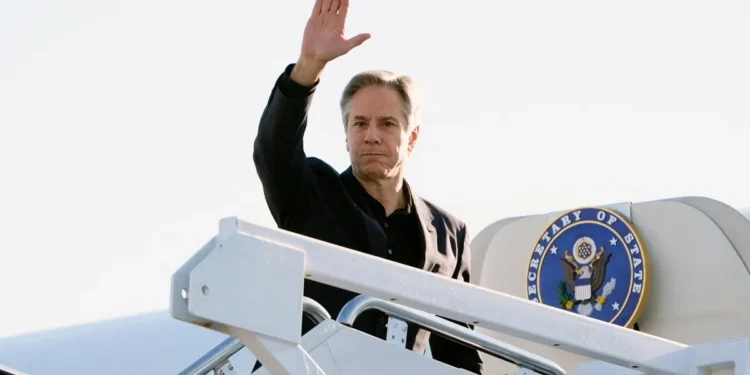Antony Blinken’s arrival in China signals a critical juncture in the already complex relationship between the United States and China. The US Secretary of State’s visit comes amid escalating tensions over China’s support for Russia in the ongoing Ukraine conflict, posing a significant challenge to bilateral ties.
The focal point of Blinken’s discussions in China revolves around the US and its European allies’ growing unease regarding Beijing’s role in aiding Russia. Specifically, concerns have been raised about China’s sale of weapon components and dual-use products to Moscow, which has enabled Vladimir Putin to bolster his military capabilities and intensify his aggression against Ukraine.
While relations between China and the US have shown signs of improvement in recent times, particularly with reduced military posturing in the Taiwan strait and progress on people-to-people ties, Blinken’s visit underscores the fragility of these developments. The sale of sensitive military technology to Russia has cast a shadow over the budding cooperation between the two nations.
Ahead of his meeting with Chinese officials, including a possible encounter with President Xi Jinping, Blinken has issued a stern warning, emphasizing that the US and its allies are no longer willing to tolerate China’s actions that undermine security in Ukraine and Europe. The looming threat of sanctions against Chinese companies involved in supporting Russia adds further weight to Blinken’s message.
The Biden administration’s stance on this issue has been reinforced by a united front with European allies, who share similar concerns about China’s role in aiding Russia. Joint pressure from Western nations underscores the seriousness of the situation and reflects a concerted effort to compel China to reconsider its support for Moscow.
However, Beijing has remained steadfast in defending its right to engage in normal trade and economic exchanges with Russia, citing principles of equality and mutual benefit. Chinese officials have emphasized that such interactions should not be subject to external interference, highlighting the complexities of the US-China relationship.
As Blinken navigates delicate discussions with Chinese counterparts, he faces the challenge of balancing concerns over Russia with other areas of cooperation, such as efforts to combat the opioid crisis stemming from the production of fentanyl precursors in China. The US seeks greater cooperation from China in disrupting illicit drug trafficking networks and enforcing regulations to address this pressing issue.
Amidst the backdrop of geopolitical tensions, both the US and China recognize the need to maintain stability and manage differences effectively. While disagreements persist on various fronts, including regional security and economic competition, diplomatic engagement remains essential in preventing further escalation and fostering constructive dialogue.
In conclusion, Blinken’s visit to China underscores the complexity of the US-China relationship and the challenges posed by divergent interests. The outcome of his discussions with Chinese officials will be closely watched, as it could have far-reaching implications for global stability and the future trajectory of US-China relations.
















